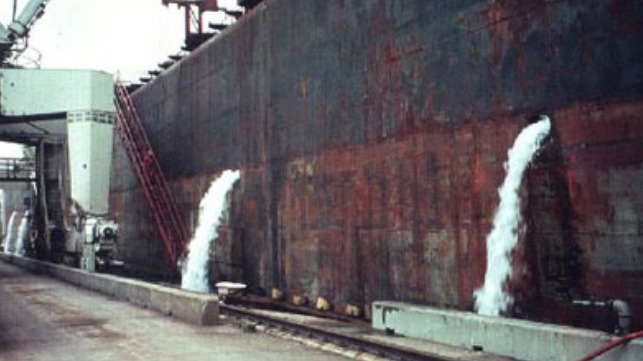Canada Funds Efforts to Improve Ballast Water Management

Canada is funding new research focusing specifically on the challenges of ballast water management for vessels operating in the St. Lawrence River region and the Great Lakes in an effort to further prevent the introduction of invasive aquatic species into the region. While evidence shows that ballast water management systems (BWMS) are an effective tool, Transport Canada is seeking to further expand the implementation and enforcement of the 2021 Ballast Water Regulations by addressing the issues created by the environment in this region.
The Minister of Transport, the Honorable Omar Alghabra, announced C$12.5 million (US $9.25 million) in funding to launch the Ballast Water Innovation Program as part of Canada’s Oceans Protection Plan. It is part of an overall increased awareness of the issues in many parts of the world and a new focus on reducing the potentially harmful effects. New Zealand’s increased enforcement and Australia’s new regulations on biofouling made headlines at the beginning of 2023 as several cruise ships were told they needed to clean their hulls before proceeding to port.
According to Transport Canada, the challenge they face is that the St. Lawrence region and Great Lakes present unique water conditions that challenge the current BWMS technologies. Among the issues, they point to are cooler water temperatures, freshwater conditions, and heavy sedimentation rates. Most ballast water management systems they noted have been developed for warmer salt-water conditions typically encountered by ocean-going vessels.
“Our government is taking action to limit the introduction and spread of aquatic invasive species through the Ballast Water Innovation Program. This will support our dedication to protecting Canada’s coastlines and waterways,” said Minister Alghabra. “The Oceans Protection Plan is helping to protect the environment by supporting sustainable marine shipping practices, and today’s announcement is a further demonstration of this commitment.”
During his presentation, he highlighted Canada’s effort to fight zebra mussels, which are native to the Caspian Sea but were introduced in 1986 to the Great Lakes region through the discharge of ballast water pumped overboard by a cargo ship. The Minister said the mussels in the Great Lakes cost Ontario nearly C$250 million annually.

that matters most
Get the latest maritime news delivered to your inbox daily.
The new program will support the shipping industry’s efforts to advance solutions to improve the performance of BWMS in the Great Lakes and St. Lawrence region. They also aim to increase the availability of information which can also be used to inform future regulations. Canada will also use the findings as part of its efforts to improve the Ballast Water Management Convention.
Transport Canada is now accepting applications for research funding from Canadian vessel owners and operators, Canadian port authorities, not-for-profit organizations, public sector organizations, and academia until May 10, 2023. They expect the approved projects to begin in 2023.
